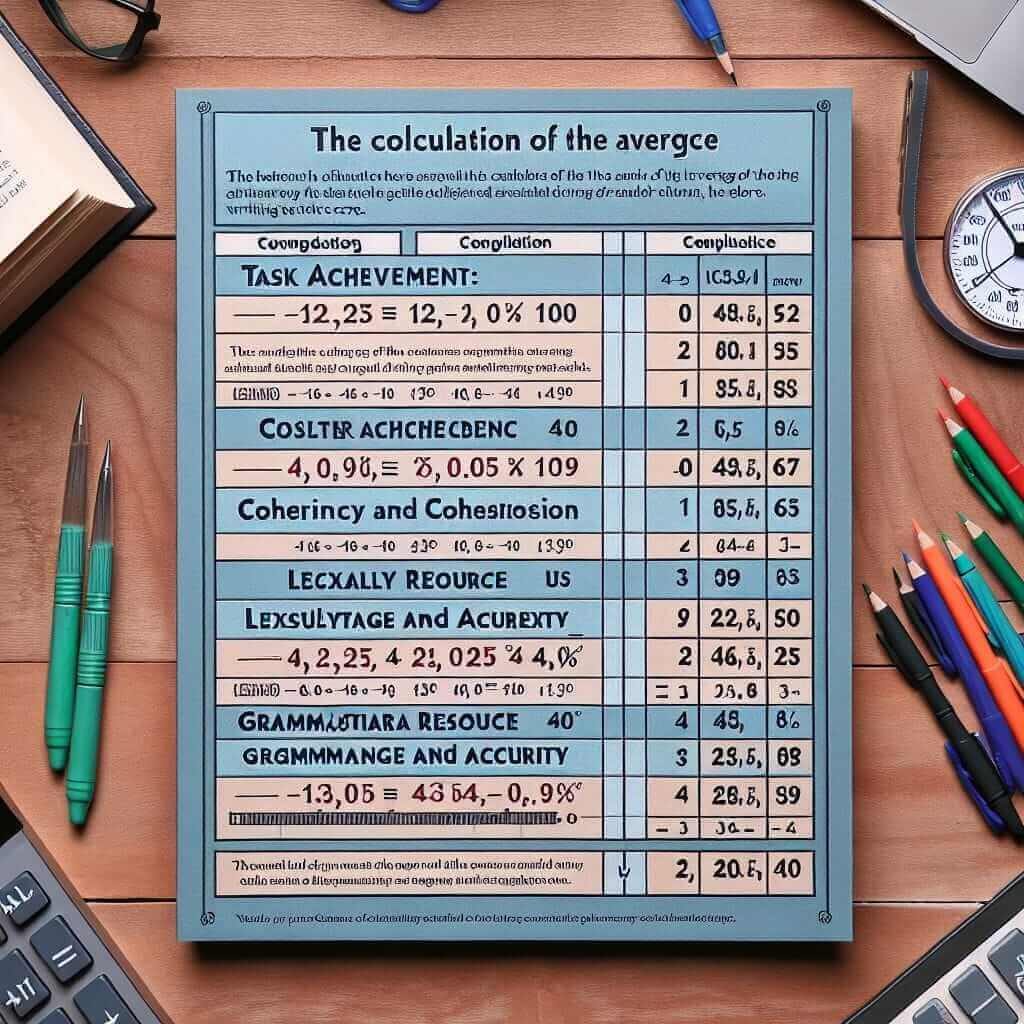The IELTS Writing test often feels like a high-stakes game, and understanding the scoring system can be the key to success. Whether you’re aiming for a band 7 or a band 9, knowing how your writing is evaluated is crucial for effective preparation. This article delves deep into the four IELTS Writing assessment criteria, explaining how they are used to calculate your overall writing score.
Understanding the Four IELTS Writing Assessment Criteria
The IELTS Writing test, for both Academic and General Training modules, is assessed based on four key criteria, each carrying equal weight (25%):
1. Task Achievement (Task Response for General Training)
This criterion assesses how effectively you have addressed the task requirements. For Task 1, it involves accurately summarizing and highlighting key features in the given visuals. For Task 2, it’s about responding to all parts of the prompt, presenting a clear position, and supporting your arguments with relevant examples and evidence.
2. Coherence and Cohesion
This criterion focuses on the overall clarity and flow of your writing.
- Coherence refers to the logical organization of your ideas. Do your paragraphs have a clear central idea? Do they flow smoothly from one to the next?
- Cohesion focuses on how well your sentences and ideas are linked together using cohesive devices such as linking words (e.g., however, furthermore, in contrast), pronouns (e.g., it, they, this), and referencing.
3. Lexical Resource
This criterion examines your vocabulary range and accuracy. Examiners look for:
- Range: Do you use a variety of vocabulary, avoiding repetition?
- Accuracy: Are your words used correctly in the given context?
- Appropriacy: Is your vocabulary appropriate for formal writing and the specific topic?
4. Grammatical Range and Accuracy
This criterion assesses your grammar skills. Examiners look for:
- Range: Do you use a variety of grammatical structures?
- Accuracy: Are your sentences free from grammatical errors?
- Punctuation: Is your punctuation correct and effective?

How is Your IELTS Writing Score Calculated?
Each of the four criteria is graded on a band scale from 0 to 9. Your final band score for writing is the average of the four individual scores, rounded to the nearest whole or half band.
Example:
Let’s say you receive the following scores on your IELTS Writing test:
- Task Achievement: Band 7
- Coherence and Cohesion: Band 6
- Lexical Resource: Band 7
- Grammatical Range and Accuracy: Band 6
Your average score would be (7+6+7+6)/4 = 6.5. Therefore, your final IELTS Writing band score would be 6.5.
Tips to Improve Your Score on Each Criterion
Here are some practical tips to help boost your performance in each assessment area:
Task Achievement/Task Response:
- Analyze the prompt: Before you start writing, take your time to understand the task requirements fully.
- Plan your response: A well-structured essay is key to a high score. Create an outline before you start writing to ensure a logical flow of ideas.
- Address all parts of the task: Make sure you answer all aspects of the question and provide relevant examples to support your points.
Coherence and Cohesion:
- Use paragraphing effectively: Each paragraph should focus on one main idea. Use topic sentences to introduce the main point of each paragraph.
- Utilize cohesive devices: Practice using a variety of linking words and phrases to connect your sentences and paragraphs smoothly.
Lexical Resource:
- Expand your vocabulary: Read widely on different topics to enhance your vocabulary. Keep a vocabulary notebook to record new words and their meanings.
- Use synonyms: Avoid repeating the same words. Try to use synonyms and different word forms to demonstrate your vocabulary range.
Grammatical Range and Accuracy:
- Review grammar rules: Familiarize yourself with different grammatical structures, especially complex sentences.
- Practice writing consistently: The more you write, the better you’ll become at using grammar accurately.
- Proofread carefully: Always proofread your work before submission to eliminate any grammatical errors or typos.
Conclusion
Understanding the four IELTS Writing assessment criteria is essential for achieving your desired band score. By focusing on each criterion and applying the tips outlined above, you can significantly improve your writing skills and approach the test with confidence. Remember, consistent practice and targeted preparation are key to excelling in the IELTS Writing test.